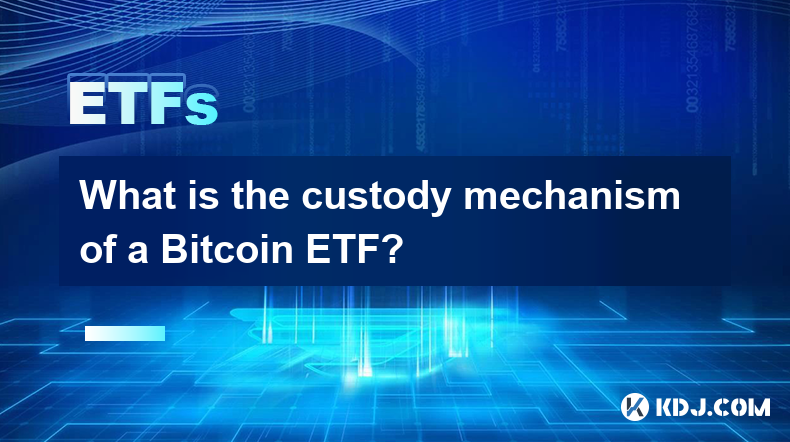-
 Bitcoin
Bitcoin $87,985.5737
0.72% -
 Ethereum
Ethereum $1,574.8026
-3.90% -
 Tether USDt
Tether USDt $0.9999
0.00% -
 XRP
XRP $2.0783
-1.83% -
 BNB
BNB $600.4630
-0.57% -
 Solana
Solana $138.7268
-1.43% -
 USDC
USDC $1.0000
0.00% -
 Dogecoin
Dogecoin $0.1604
-0.49% -
 TRON
TRON $0.2468
0.93% -
 Cardano
Cardano $0.6232
-2.68% -
 Chainlink
Chainlink $13.0447
-3.65% -
 UNUS SED LEO
UNUS SED LEO $9.1903
-2.36% -
 Avalanche
Avalanche $19.7884
-0.95% -
 Stellar
Stellar $0.2455
-2.64% -
 Toncoin
Toncoin $2.9136
-3.77% -
 Shiba Inu
Shiba Inu $0.0...01234
-3.12% -
 Sui
Sui $2.2351
0.79% -
 Hedera
Hedera $0.1701
-0.34% -
 Bitcoin Cash
Bitcoin Cash $343.8870
1.52% -
 Hyperliquid
Hyperliquid $18.4355
1.81% -
 Litecoin
Litecoin $78.5146
-0.23% -
 Polkadot
Polkadot $3.7235
-4.61% -
 Dai
Dai $1.0000
0.00% -
 Bitget Token
Bitget Token $4.4307
-2.55% -
 Ethena USDe
Ethena USDe $0.9992
-0.01% -
 Pi
Pi $0.6322
-0.72% -
 Monero
Monero $215.4354
-0.09% -
 Pepe
Pepe $0.0...07934
0.95% -
 Uniswap
Uniswap $5.2398
-3.49% -
 OKB
OKB $50.8827
-0.49%
What is the custody mechanism of a Bitcoin ETF?
The choice of custodian for Bitcoin ETFs is paramount, influencing both security and regulatory compliance, thus impacting investor confidence and market stability.
Feb 16, 2025 at 08:01 am

Key Points:
- Understanding the role of custodians in Bitcoin ETFs
- Types of custodians and their functions
- Custody process and security measures
- Regulatory framework for ETF custody
- Implications for investors and market stability
Understanding the Role of Custodians in Bitcoin ETFs
Exchange-traded funds (ETFs) provide investors with a convenient way to gain exposure to cryptocurrencies without directly holding or managing the underlying assets. Bitcoin ETFs, in particular, offer a regulated and accessible means of investing in the cryptocurrency market.
At the heart of Bitcoin ETFs lies the critical role of custodians. These specialized financial institutions are responsible for the safekeeping, storage, and management of the Bitcoin underlying the ETF shares.
Types of Custodians and Their Functions
Custodians for Bitcoin ETFs fall into two main categories: qualified custodians and non-qualified custodians.
- Qualified custodians: These institutions meet the stringent requirements set by the U.S. Securities and Exchange Commission (SEC) and other regulatory bodies. They provide a high level of security and are subject to regular audits and inspections.
- Non-qualified custodians: These institutions may not meet all the requirements for qualified custodians but are still subject to regulatory oversight. They typically provide a lower level of security and are often used for ETFs that hold smaller amounts of Bitcoin.
The primary functions of custodians include:
- Safeguarding the physical or private keys of the Bitcoin
- Managing the movement and storage of Bitcoin
- Ensuring the integrity of the Bitcoin holdings
- Providing transparency and reporting on custody activities
Custody Process and Security Measures
The custody process for Bitcoin ETFs typically involves the following steps:
- Deposit: The Bitcoin is deposited into a dedicated wallet or vault controlled by the custodian.
- Verification: The custodian verifies the ownership and amount of Bitcoin deposited.
- Storage: The Bitcoin is stored in secure hardware wallets, vaults, or other storage solutions designed to protect against unauthorized access.
- Monitoring: The custodian regularly monitors the security and integrity of the Bitcoin holdings.
- Redemption: When an investor redeems their ETF shares, the custodian releases the corresponding amount of Bitcoin to the investor's designated wallet.
Security measures employed by custodians include:
- Cold storage: Bitcoin is stored offline in secure hardware wallets or vaults, reducing the risk of hacking and theft.
- Multi-factor authentication (MFA): Access to custody systems requires multiple layers of authentication, including biometrics and hardware tokens.
- Insurance: Custodians typically provide insurance coverage for the Bitcoin held in custody.
Regulatory Framework for ETF Custody
The regulatory framework for Bitcoin ETF custody varies across jurisdictions. In the United States, the SEC requires custodians to meet specific criteria, including:
- Audited financial statements
- Physical possession and control of the Bitcoin
- Independent board of directors
- Robust cybersecurity measures
Custodians must also comply with anti-money laundering (AML) and know-your-customer (KYC) regulations to prevent illicit use of the ETF.
Implications for Investors and Market Stability
The choice of custodian has significant implications for investors and the overall market stability. Investors should consider the following factors:
- Security: The custodian's reputation and track record in maintaining the security of assets.
- Regulatory compliance: The custodian's compliance with relevant regulations and industry standards.
- Insurance coverage: The extent of insurance coverage provided by the custodian.
- Fees: The fees charged by the custodian for custody services.
A secure and well-regulated custody mechanism is essential for the growth and stability of the Bitcoin ETF market. Investors can have confidence in their investments knowing that their Bitcoin is held in a secure and compliant manner.
FAQs:
1. What are the key security risks associated with Bitcoin ETF custody?
- Hacking attacks targeting custody systems
- Internal fraud or collusion within the custodian
- Physical theft or destruction of stored Bitcoin
2. How do custodians mitigate the risk of unauthorized access to Bitcoin?
- Cold storage
- Multi-factor authentication
- Physical security measures
- Employee screening and background checks
3. What role do regulatory bodies play in ensuring the security of Bitcoin ETFs?
- Enforcing custody requirements
- Conducting regular audits and inspections
- Reviewing and approving custodian appointments
- Setting standards for anti-money laundering and know-your-customer (KYC) compliance
Disclaimer:info@kdj.com
The information provided is not trading advice. kdj.com does not assume any responsibility for any investments made based on the information provided in this article. Cryptocurrencies are highly volatile and it is highly recommended that you invest with caution after thorough research!
If you believe that the content used on this website infringes your copyright, please contact us immediately (info@kdj.com) and we will delete it promptly.
- Reserve Protocol's RSR token surges over 13% after Coinbase listing announcement
- 2025-04-22 13:40:11
- Bitcoin (BTC) May Soon Mirror Gold's Price Trajectory, Setting Up a $450,000 Target by Year-End
- 2025-04-22 13:40:11
- PEPE price prediction: Bullish breakout could be the start of a rally
- 2025-04-22 13:35:12
- Pi Network (PI) Price Prediction: Experts Forecast Jump to $5
- 2025-04-22 13:35:12
- 4 Altcoins That Will Explode in 2025: What Web3 ai, XRP, Cardano, and PEPE Are Signaling Now
- 2025-04-22 13:30:12
- Mantra (OM) founder and CEO John Patrick Mullin has started unstaking 150 million of his Mantra (OM) tokens
- 2025-04-22 13:30:12
Related knowledge

What is the difference in returns between long-term holding of a Bitcoin ETF and holding Bitcoin directly?
Apr 09,2025 at 04:15am
When considering the difference in returns between long-term holding of a Bitcoin ETF and holding Bitcoin directly, it's essential to understand the nuances and factors that affect each investment option. Both approaches have their unique advantages and potential drawbacks, which can significantly impact the overall returns over time. Understanding Bitc...

How is the "roll cost" of a futures Bitcoin ETF generated?
Apr 08,2025 at 01:22pm
The 'roll cost' of a futures Bitcoin ETF is a critical concept for investors to understand, as it directly impacts the performance of the ETF. In this article, we will delve into the mechanics of how the roll cost is generated, exploring the underlying processes and factors that contribute to this cost. Understanding Futures ContractsFutures contracts a...

How can the premium or discount of a Bitcoin ETF be narrowed through an arbitrage mechanism?
Apr 09,2025 at 12:07am
Arbitrage mechanisms play a crucial role in narrowing the premium or discount of a Bitcoin Exchange Traded Fund (ETF). Understanding how these mechanisms work can provide valuable insights into the dynamics of Bitcoin ETFs and their relationship with the underlying asset. This article will delve into the specifics of how arbitrage can be used to align t...

What factors affect the bid-ask spread of a Bitcoin ETF?
Apr 08,2025 at 08:50pm
The bid-ask spread of a Bitcoin Exchange Traded Fund (ETF) is a critical metric that investors and traders closely monitor. It represents the difference between the highest price a buyer is willing to pay (bid) and the lowest price a seller is willing to accept (ask). Several factors influence this spread, and understanding them can help investors make ...

How is the seed capital of a Bitcoin ETF used?
Apr 10,2025 at 02:15pm
The seed capital of a Bitcoin ETF plays a crucial role in the establishment and operation of the fund. This initial investment is used to create the fund's underlying assets, manage operational costs, and ensure the ETF can start trading on an exchange. Understanding how this seed capital is utilized provides insight into the mechanics of Bitcoin ETFs a...

What is the difference between "physically backed" and "synthetic" Bitcoin ETFs in terms of holding assets?
Apr 10,2025 at 04:56pm
Bitcoin Exchange Traded Funds (ETFs) have become a popular way for investors to gain exposure to the cryptocurrency market without directly owning the underlying asset. There are two primary types of Bitcoin ETFs: physically backed and synthetic. Understanding the differences between these two types, particularly in terms of how they hold assets, is cru...

What is the difference in returns between long-term holding of a Bitcoin ETF and holding Bitcoin directly?
Apr 09,2025 at 04:15am
When considering the difference in returns between long-term holding of a Bitcoin ETF and holding Bitcoin directly, it's essential to understand the nuances and factors that affect each investment option. Both approaches have their unique advantages and potential drawbacks, which can significantly impact the overall returns over time. Understanding Bitc...

How is the "roll cost" of a futures Bitcoin ETF generated?
Apr 08,2025 at 01:22pm
The 'roll cost' of a futures Bitcoin ETF is a critical concept for investors to understand, as it directly impacts the performance of the ETF. In this article, we will delve into the mechanics of how the roll cost is generated, exploring the underlying processes and factors that contribute to this cost. Understanding Futures ContractsFutures contracts a...

How can the premium or discount of a Bitcoin ETF be narrowed through an arbitrage mechanism?
Apr 09,2025 at 12:07am
Arbitrage mechanisms play a crucial role in narrowing the premium or discount of a Bitcoin Exchange Traded Fund (ETF). Understanding how these mechanisms work can provide valuable insights into the dynamics of Bitcoin ETFs and their relationship with the underlying asset. This article will delve into the specifics of how arbitrage can be used to align t...

What factors affect the bid-ask spread of a Bitcoin ETF?
Apr 08,2025 at 08:50pm
The bid-ask spread of a Bitcoin Exchange Traded Fund (ETF) is a critical metric that investors and traders closely monitor. It represents the difference between the highest price a buyer is willing to pay (bid) and the lowest price a seller is willing to accept (ask). Several factors influence this spread, and understanding them can help investors make ...

How is the seed capital of a Bitcoin ETF used?
Apr 10,2025 at 02:15pm
The seed capital of a Bitcoin ETF plays a crucial role in the establishment and operation of the fund. This initial investment is used to create the fund's underlying assets, manage operational costs, and ensure the ETF can start trading on an exchange. Understanding how this seed capital is utilized provides insight into the mechanics of Bitcoin ETFs a...

What is the difference between "physically backed" and "synthetic" Bitcoin ETFs in terms of holding assets?
Apr 10,2025 at 04:56pm
Bitcoin Exchange Traded Funds (ETFs) have become a popular way for investors to gain exposure to the cryptocurrency market without directly owning the underlying asset. There are two primary types of Bitcoin ETFs: physically backed and synthetic. Understanding the differences between these two types, particularly in terms of how they hold assets, is cru...
See all articles























































































